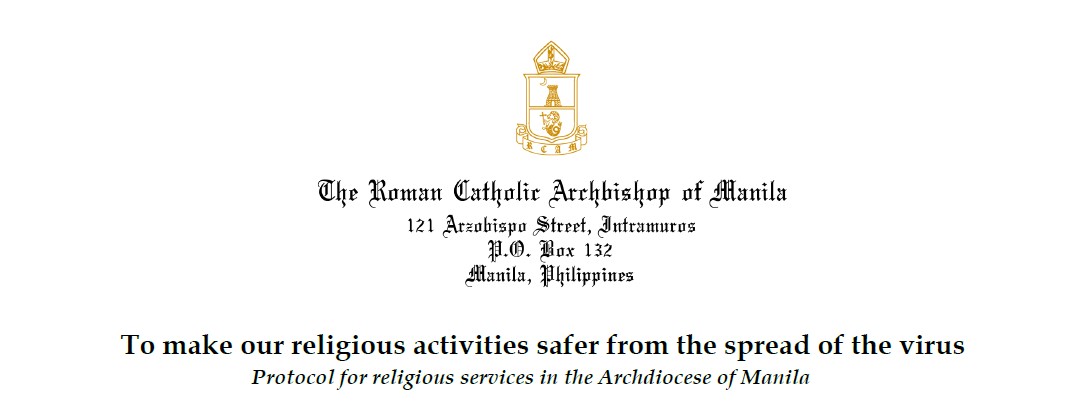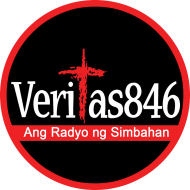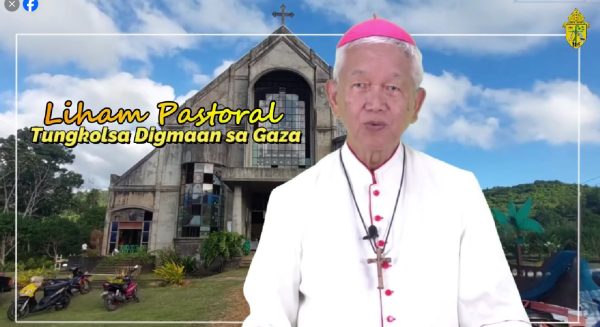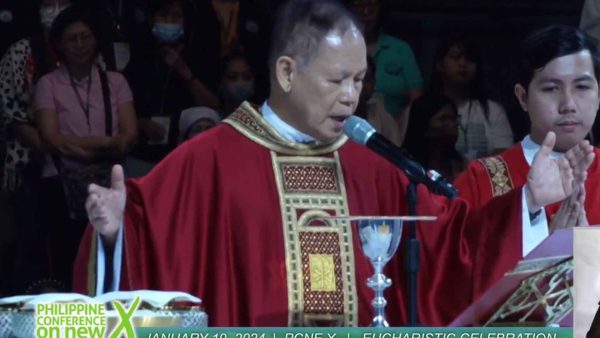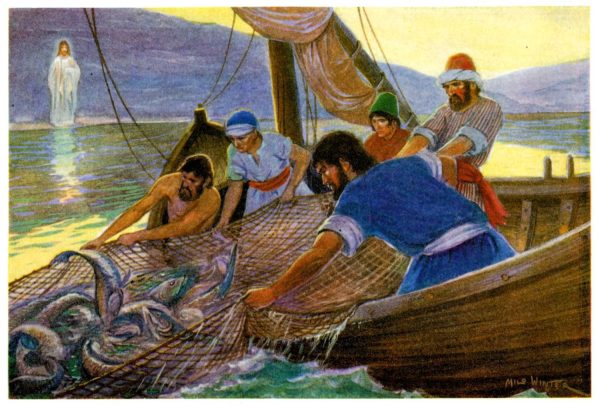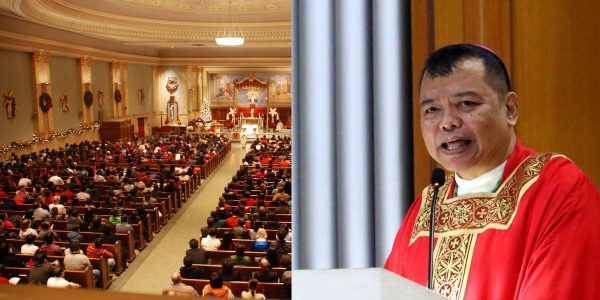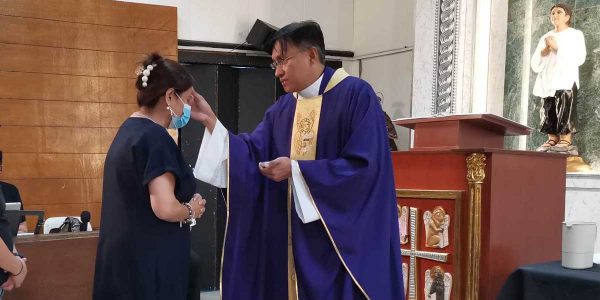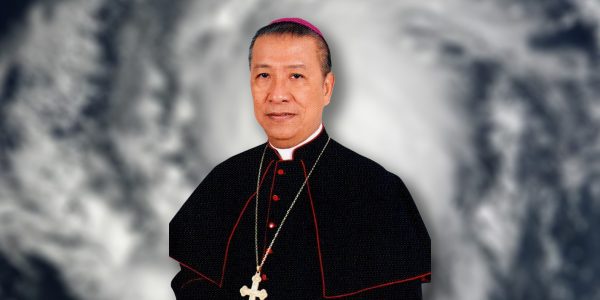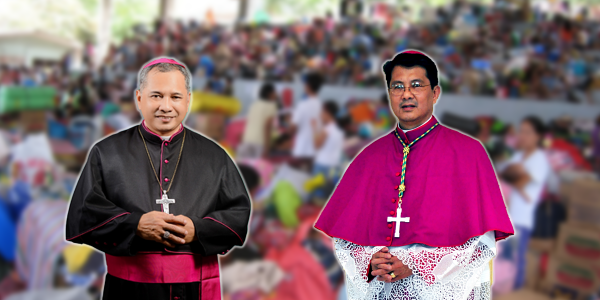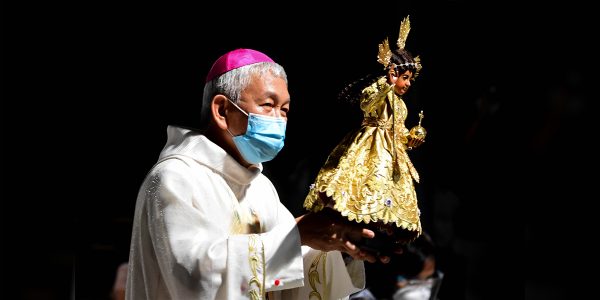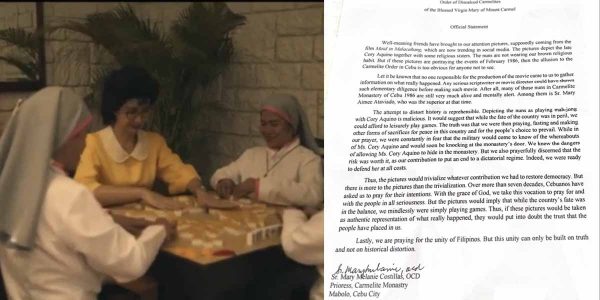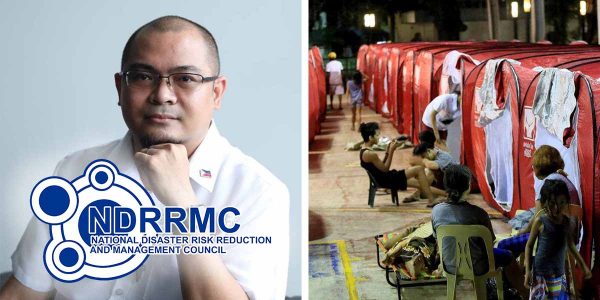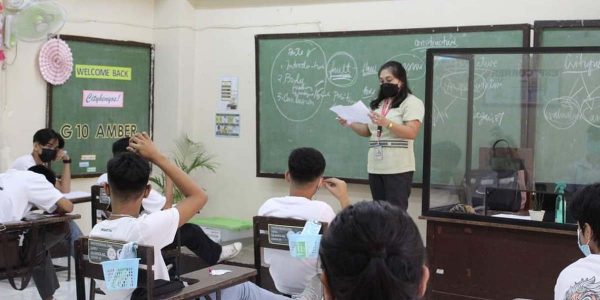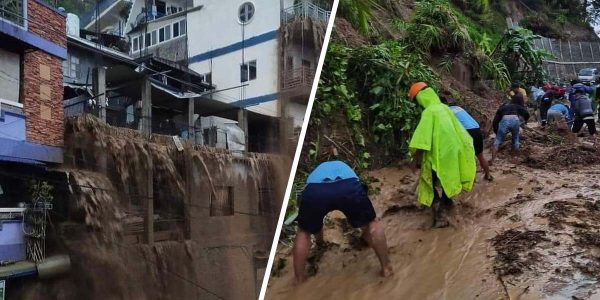2,210 total views
To make our religious activities safer from the spread of the virus
Protocol for religious services in the Archdiocese of Manila
Note: These guidelines are given due to our extraordinary situation. They are therefore temporary in nature. Furthermore, the situation is so fluid that we foresee that there will be other guidelines that will follow when the situation changes or when there are other directives that will come from the government or from the church hierarchy.
These guidelines are given so that we are prepared when religious services will already
be allowed.
Schedules:
1. There should be at least a half hour gap between Masses to allow the church to be disinfected after each service.2. Since we have lesser Masses on Sundays, we can have more services on weekdays.
3. Ask the people to come on the times when there are lesser people. Encourage the faithful to come on weekday Masses if they cannot come on Sundays.
4. The presence of difficulty, and in some cases impossibility, of fulfilling the Sunday obligation renders the obligation suspended during these extraordinary circumstances. While Sunday and weekday Masses will already be celebrated in parishes, the live streaming of Masses, at least on Sundays, will continue for those who are unable to participate in the community celebrations due to sickness, old age, fear and caution.
5. Because we will have lesser Mass schedules on Sundays and less people can come on Sundays, the parishes may start their “anticipated Masses” on Saturdays at 3 pm, thus have three or four Masses on Saturdays and invite the
people to join in these Masses.
6. We can have more schedules of baptisms during the week so that people will not congregate on Sundays.
Physical structure:
1. Clearly mark the entrance and exits to the church so that incoming people will not meet outgoing ones. Have marshals who shall man the entrance and exits on Sundays to keep order.
2. Each entrance and exit should have footbath container.
3. There should be hand sanitizers at the entrances.
4. The places to be occupied in the pews should be indicated to help people keep social/ physical distancing. The people should strictly occupy only those places indicated.
5. There should be notices in front of religious images telling people not to touch or wipe the images. Short prayers can be posted in front of the images to help the people pray in front of them.
6. All holy water fonts should be emptied and covered so that they may not be used.
7. If the adoration chapel is small and enclosed, it is better not to open it. Encourage the people to pray in church instead.
8. Let there be non-touch garbage disposal bins in parish offices and around the church and remind the people to dispose their waste in the proper places. The maintenance people in the parishes are to be taught to properly dispose the garbage.
9. Let the parish comfort rooms be properly maintained and soap be available for proper hand washing.
10. For those churches which are air-conditioned, it would be better if the airconditioning is not used during this time. It will not be so hot after all because there will not be any over-crowding. Explain to the people that open areas are better than closed spaces to ward off the virus.
11. For those parishes with mortuaries, do not accept clients who have many days of wakes. These days, the shorter the wake, the better. Anyway, they cannot expect distant relatives to travel these days and online services are available for them to participate without being physically present at the funerals.
12. If we allow less people to participate physically in baptisms, weddings, and funerals, let the parish be ready to offer to the people online services. So the parishes should have their own equipment, good internet connection, and
properly trained people.
Services of the RCAM:
1. We will ask RCAM to buy mask, alcohol, and sanitizers in bulk to get them cheaper and the parishes will just have to buy them from RCAM.
2. Since online Masses will have to continue for quite some time, let the Commission of Social Communion help the parishes how to technically improved their online capability, like what gadgets to use for better output and
how to improve their internet connections. Let the Social Communication Ministry of the parishes be given added training.
During the Holy Mass:
1. All the people attending the Mass and other church services should wear face mask. In fact, the marshals and ushers should see to it that all people in the Church and its offices should wear face masks. For those who do not have, low priced face masks should be available in the parish offices.
2. The body temperature of all those who enter the church building shall be taken, by thermal body scan, which will be a standard equipment in all parishes.
3. The person/s who prepare/s the hosts, water and wine for consecration need/s to observe proper hygiene and health protocols.
4. Let there be only one or two altar boys serving in the Mass. If possible, the Mass servers should not be children, and if they are below 18 years old, they should have the written permission of their parents.
5. If the Mass servers are all children, let the extraordinary lay ministers be trained to serve also as Mass servers.
6. Instead of choirs, we will just request a song leader and an instrumentalist to lead the people in singing. There can be less singing in the Mass.
7. The ushers and marshals shall be going around the church to remind people of the social distancing.
8. Once the indicated spaces to be occupied are filled, we will no longer allow the people to enter the Church. They can stay outside but with proper social distancing. Because of this, the sound system should also be clear to the people outside and TV monitors can be set up so that the people outside the church can also know what is happening in the Mass.
9. In parishes where there are parking spaces within the church compound, if there is need and if their budget would allow, they can set up big monitors in the parking lot and a loud sound system so that if the church is full the people can participate in the Mass in their cars.
10. If there are enough priests, Masses can be celebrated outside of the church, like in gymnasiums, still observing social distancing.
11. We need to recruit younger people as volunteers to help in the ministries, like collectors, lay ministers, and ushers to lessen possibilities of infections among the elderly. If the elderly volunteers insist to serve they may be allowed but with proper warning and precautions. Their time of service, however, should be shortened to limit the possibility of exposure to any infection.
12. In the church lecterns, the microphones should have coverings; these are to be changed after each Mass.
13. Things used in the Mass should be washed with hot water and properly ironed. This can be one way of disinfecting them.
14. There will no longer be offertory processions. The offerings can be dropped in a basket at the back of the church or in a box and one or two persons will bring these in front during the offertory. There will be no offering of the bread and wine coming from the people.
15. The collection during the offertory will be done through bags attached to sticks, and not bags that are passed around.
16. There will be no holding of hands at the Our Father and no handshakes at the giving of peace. A bow with a smiling face can already be a good sign of peace.
17. Before communion the priest shows the Sacred Host to the people and says: “The Body of Christ” and the people answer “Amen”. When the communion is given to the hands to each communicant, there will no longer be any conversation between the minister and the communicant.
18. If the congregation is small enough especially on weekday Masses, only the priest will give communion.
19. The lay ministers and the priests will wash their hands with alcohol before and after they give communion. It is good that this is done in view of the people to give them assurance of the hygienic practice.
20. The flow of the communicants should be so directed that there be no meeting of people. They come from one side and go to the other side after communion.
21. All the ministers and the priests should wear face masks during the giving of the communion.
22. The face mask should be worn by all the Mass servers – the altar boys/girls, the lay ministers, the sacristans and the lectors when not reading.
23. After the Mass, the people would not be immediately allowed to enter so that the pews can be disinfected. A group of volunteers can be organized to do this. It can be called the SANITATION MINISTRY.
24. Ministers can bring communion to the sick and the elderly. Arrangements can be made that communion be distributed in chapels for those who are not disposed to join the community celebrations due to fear and caution.
25. People will be catechized on the need for internal disposition before receiving communion, like participation in the live stream Masses, short liturgy of the Word with the family, and personal prayer. These prayers can also be printed in tarpaulins outside barangay chapels where communions outside the Mass will be given.
26. In those areas without nearby chapels, communion can be given but outside the
house. Let the communicants, dressed in a decent way, wait for the ministers to pass to give communion. It would be good if there is a small table with sacred images or a crucifix as an indication that someone in this house is receiving
communion. The parish should be advised beforehand and the people be told around what time the minister will be coming to give communion.
27. Young and healthy women religious and seminarians will be requested to help in distributing communion to the sick and the elderly.28. The “Mass in Time of Pandemic” [Recently provided by the Holy See] can be celebrated, according to the rubrics given for Masses and Prayers for Various Needs and Occasions, on any day except Solemnities, the Sundays of Advent, Lent, and Easter, days within the Octave of Easter, the Commemoration of All
the Faithful Departed (All Souls’ Day), Ash Wednesday and the days of Holy Week. Please see again the communication from the Holy See regarding the text and the use of this Mass.
29. The Oratio Imperata is to be prayed in every Mass.
30. Children and the elderly will be advised to stay at home and join in the online
Mass. They may receive communion which will be distributed outside the Mass at the places indicated.
For Baptism:
1. Only the parents and one set of godparents will be allowed per child for the baptism. If there are many to be baptized, the children to be baptized can be organized by smaller batches.
2. Let the parishes allow baptisms to be celebrated during set times on weekdays to decongest baptisms on Sundays.
3. The Holy Oils should be applied, using cotton, on the one baptized. The cotton with holy oils should be burned after the celebration. The cotton applied to one child should not be used for another child. One cotton ball per child.
For confirmation:
1. We can forgo Mass confirmations this year. Those who are to be baptized as adults or who get married can be confirmed by the parish priest as church discipline dictates.
For confessions:
1. The small confessional boxes should be reconfigured to allow social distancing. If this cannot be done then have the confessions done outside the confessional box, with one meter distance between the penitent and the priest. A special place should be designated for this where people can see that confessions are available.
2. Both the priest and the penitent should wear face masks.
3. Priests may not hear confessions via telephone or Zoom teleconferencing, though they may use these methods to offer the penitents spiritual counsel.
4. When the sacrament of Reconciliation is not possible, for example to a patient who is isolated or in quarantine, they can make an Act of Perfect Contrition. An Act of Perfect Contrition always has been a part of our Catholic tradition. God is always present to us, even when the Sacrament of Reconciliation is not possible. While a priest cannot give absolution over the phone, he can use the phone to give a blessing and even guide a person through an Act of Perfect Contrition. This is done when the person expresses faith in and love of God above all things and resolves to make a sacramental Confession as soon as possible. All his/her
sins, even mortal sins, are forgiven.
5. The parishes can organize kumpisalan ng bayan with penitential service to enable the people to come to confession, which they were not able to do last Lent. If there are too many people, then two or three kumpisalan na bayan can be done. Proper social/physical distancing should be observed as during the Mass. The parishes in the vicariates can help one another here.
For weddings:
1. We allow only simple weddings this year, with only the bride and the groom with one set of sponsors and the immediate family. Wala na munang mga abay.
For Anointing of the Sick
1. The appropriate protocols like the wearing of face mask, gloves, and the necessary preparation and post-visit guidelines must be followed.
2. The laying on of hands may be done without physical contact on the head of the sick.
3. Sanitize the oil stock before and after each anointing to avoid contamination of the sacred oil.
4. A cotton ball or cotton buds/tips can be used instead of the thumb for anointing. For each anointing, use a new cotton ball/tips and new oil on the cotton.
5. It is permitted that only the forehead be anointed.
6. For communion of the sick and viaticum, enough consecrated hosts must be brought to avoid unnecessary contamination of the host/s.
For Funerals:
1. Only let the immediate family be allowed during funeral Masses in the church, observing proper social distancing.
2. Avoid having several dead people for one funeral Mass to avoid large crowds. This would mean more funeral Masses or telling the people not to bring their dead to the church anymore if a Mass has already been done during the wake.
3. Proper social distancing is to be observed during wake Masses.
Blessing of sacramentals:
1. A place should be indicated where people can have their medals, rosaries, statuettes, and other materials blessed. The place should be big enough so that the people need not congregate as they wait for the priest for the blessing.
2. The parish can have containers with holy water available for people to bring home. They should be properly instructed that this holy water can be used in their homes to remind them of their baptism.
Parish Ministers and Volunteers
1. Our Extraordinary Ministers of Holy Communion, ushers, and other ministers need retraining considering the extraordinary circumstances and the appropriate protocol. The Archdiocesan Liturgical Commission will provide instructional videos. Parish Priests and ministry coordinators will be responsible for their retraining.
In parish offices:
1. Parish offices should be so designed that proper distancing is observed.
2. There should be thermometer check for all who enter the parish office.
3. There is sanitation handwash facility upon entering the office.
4. Let the parish offices set up facilities for online donations and let these by transparent and user-friendly.
5. An important work of the parish office now is to build up the data base of the parishioners so that text or email blasts can be given to them inform them of what is happening in the parish. This can also create a sense of belongingness to the parish.
Recollections:
1. Organize more online recollections, talks and Bible studies and tell the people to attend these for their spiritual nourishment. Encourage the people to tune in more to Radio Veritas and to TV Maria which can broadcast these talks.
2. The spirituality of stewardship should be promoted in the talks. In this spirituality all the faithful are reminded that we belong to the family of God, which is the Church. Each is obliged to support the church according to one’s
capability. We give to the church not because we have received a service from it. We support it regularly and voluntarily because we are part of it.
To get in touch with the parishioners:
1. Let the parish have Zoom capability so that it can organize meeting with some parish leaders without asking them to physically come to the church.
2. Let each parish invest in its social communication infrastructure and have people properly trained for its social communication ministry.
Health Ministry:
1. Let all parishes set up a functional health ministry whose activities could include:
• to identify the sick and the elderly in the parish and minister to them;
• to help comfort the sick and their family;
• to help people make referrals when they get sick;
• to take care of health care workers within the parish and have good relations with them;
• to guide people to have healthy lifestyle; and,
• to minister to the mentally sick.
2. When volunteers join the ministries in the parish, health precautions should be given to them by this ministry. The would-be volunteers should be made to understand that their health is their responsibility, so they have to observe necessary precautions.
3. A part of the work of this ministry is to help bring communion to the sick and the elderly. Only young volunteers are to be asked to do this.
Social Communication Ministry:
1. Every parish should have a social communication ministry, with proper equipment and well trained people.
2. Let the parish have their own online Mass every Sunday.
3. Let each parish maintain its own Facebook page where people can get relevant information about and from the parish.
4. The task of the SoCom ministry is also to help the people to be responsible users of the social means of communication and not be addicted to it or be manipulated by it.
Maintaining good relationships:
1. Let the parish priests and parish leaders maintain good relationships with the barangay leaders and the LGU officials.
2. We follow up the relationships we have established during this quarantine period and maintain long term engagements with them.
3. Inform our donors of what we have done and maintain good relations with
them.
Parish personnel:
1. The general policy is that as much as possible we do not lay off regular personnel so as not to add to the unemployment problem of our people. If need be, we have to retool or reschedule our personnel to take on new jobs that the new situation calls us. However it should be properly explained to them that if the financial situation of the parish does not improve, then their work load – consequently their wages – will be diminished and some other benefits may no longer be given. All of these however should be done in consultation with our legal office
and thus done according to law and charity.
Finances:
1. We expect our revenues to fall. People have no money and we have to do a lot of charitable works. Thus let us minimize our expenses, especially our capital expenses. Improvements and projects can wait but proper maintenance should be done so as not to incur greater expenses later on.
2. The finance department of RCAM will set up guidelines for online donations. All the parishes should be open to online donations but the transparency and proper accounting of the donations should remain.
3. Let the parishes strive to give their contributions to the Curia because these go to the salaries of our catechists and to the apostolic fund of the priests. We priests and the catechists continue to receive our allowances even in this situation.
+Bishop Broderick Pabillo
Apostolic Administrator of Manila
May 6, 2020
To make our religious activities safer from the spread of the virus


